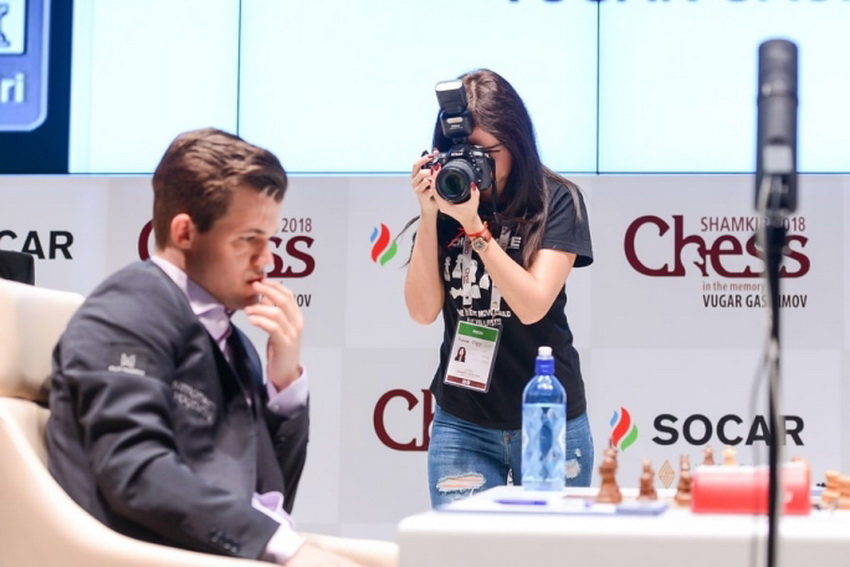In a decade or so, powerful community leaders may look back to an Athens nonprofit remembering where they first gained the confidence, curiosity and passion needed to make a difference. Local nonprofit Chess and Community works closely with Athens youth by pairing games of chess with mentorship, dramatically changing the lives of kids and empowering them for future success.
The organization has come a long way since poet and social worker Lemuel “Life” Laroche started playing chess with kids five years ago, and is now expecting over 500 attendees to celebrate its 5th Annual Conference this January.
“When I started working with the kids, we used to just eat pizza and play chess. Whenever they were frustrated, they would call me and say ‘let’s play chess’ and I would just play chess with them and help them through whatever issues they were struggling with,” Laroche said.
When Laroche was younger, community elders taught him patience and critical thinking skills through games of chess. Through mirroring the games with which he grew up, Laroche hopes to help other kids gain empowering knowledge that will help them avoid cycles of under-education and poverty common to the Athens area.
Besides playing chess, the group goes kayaking, backpacking, holds debates, has a summer book club and has even visited Stone Mountain and Washington D.C. together. This summer, a select group of eight children will have the chance to visit Ethiopia for 20 days, expanding their cultural perspectives to encompass societies very different from their own.
Kids involved in the program are called the Classic City Knights, and experience an atmosphere of encouragement and brotherhood through their participation in Chess and Community.
“At first I wasn’t really into chess, but then I got into the group and it was fun. I made a lot of friends,” said Classic City Knight, Jaishon Richards.
Yolanda Parker, Richard’s mother, noted that he has been more confident and has developed good values and friendships since joining Chess and Community in 2015.
“It gives a good groundwork for him to reflect back on if he is slipping with his grades,” Parker said.
The largest chess tournament of the year will be held at the 5th Annual Chess and Community Conference in coordination with the UGA School of Social Work.
More than 150 kids from all over the country are expected to participate in the tournament, forming a friendly competitive atmosphere for the players to socialize and get to know each other. Notably, the conference hosts an impressive Justice Served chess match where local kids have the opportunity to play against Athens police officers, connecting the two groups on a personal level during the friendly match.
Other than police officers, the kids will play a match against Athens commissioners, giving them the opportunity to ask questions about the community and start networking with powerful individuals at a young age. UGA football players will also attend the conference and compete with the kids— an exciting prospect for Classic City Knights who dream of becoming future bulldogs.
Just like the organization Chess and Community, the annual conference isn’t solely focused on playing games of chess.
Accomplished speakers will present at the conference to inspire young locals of ways they can use their unique abilities to make a difference in the world. The special guests include a young entrepreneur from Athens called Lil Ice-Cream Dude, the mayor of Tallahassee and the Athens City Manager.
In addition, $1,000 college scholarships called Think Before You Move, will be presented to four local high schoolers who wrote essays best answering the question of which changes they’d like to see implemented in the Athens community within the next 20 years.
Laroche feels it’s valuable to include high schoolers in conversations about a 20-year vision for Athens because when they grow up, they will be the ones living with the choices that are made. Ideally, if current Classic City Knights end up in Athens’ leadership roles, they’ll have the tremendous ability to implement changes they feel most passionate about.
“Everything at the conference is designed to get the kids thinking ‘wow, maybe I can have some impact in my community now and 20 years from now,’” Laroche said.
“Everything at the conference is designed to get the kids thinking ‘wow, maybe I can have some impact in my community now and 20 years from now.’”
– Lemuel “Life” Laroche
While the kids are playing chess, visitors at the conference are encouraged to enjoy an art display hosted by Assistant Director of Chess and Community, Broderick Flanigan. The art is submitted by talented young creatives from local middle and high schools, and entered in a competition surrounding the theme of envisioning an ideal Athens in the future.
Flanigan feels that similar to the game of chess, the practice of creating artwork can also teach values of patience, planning and creative problem solving.
“The design of creating artwork uses critical thinking of what steps are needed to complete the piece, but a lot of people don’t think about art like that,” Flanigan said.
By showcasing talent, ideas and inspiration, Chess and Community hopes that the annual conferences will not only be a way to bring revenue into Athens, but also a way to bring teams from all over the world into the city to compete, bringing an international awareness to the community.
The 5th Annual Chess and Community Conference will be held Jan. 7 in Tate Center Grand Hall from 10 a.m. to 4 p.m. The event is free of charge, open to the public and lunch will be served halfway through the conference. The organization hopes participation in the Classic City Knights and community involvement will continue to grow in the coming years.
Laroche feels there is no shortage of places for passionate locals to volunteer. Thus, making a positive difference in the lives of local kids by connecting them to each other as well as shining a light on opportunities in the world surrounding them.
article source







